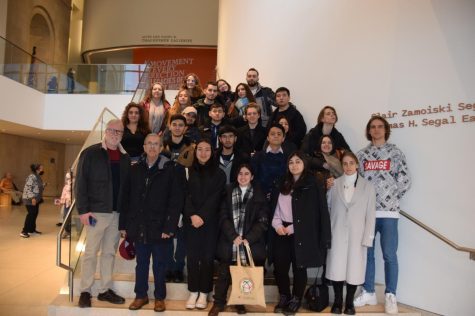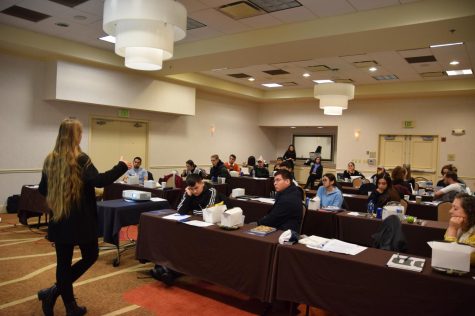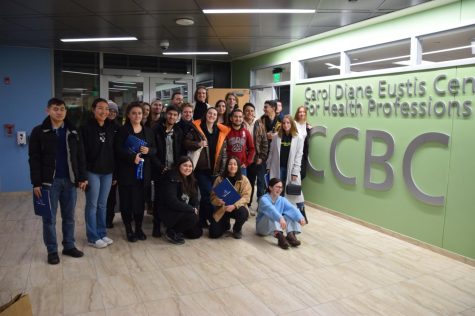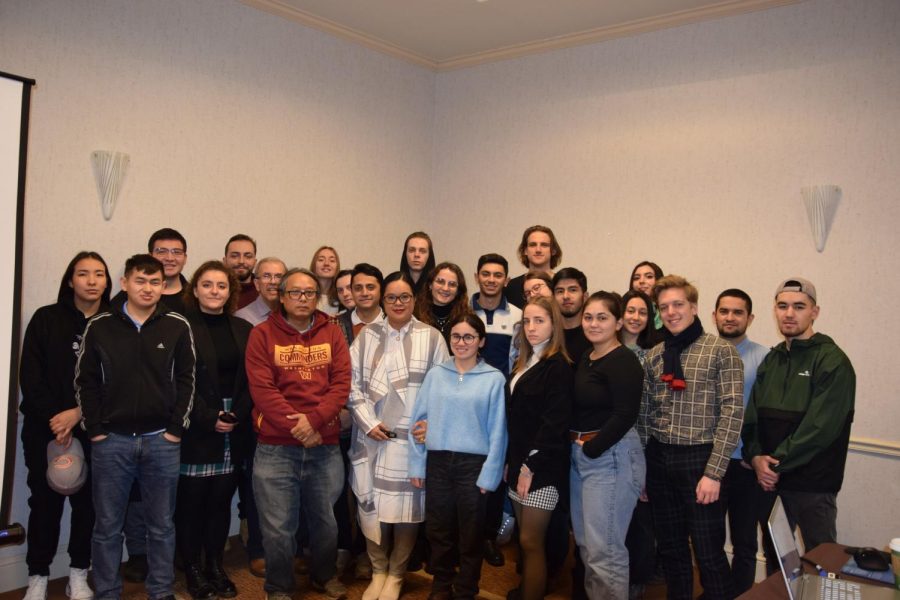The Baltimore Effect
COD students attend the Media Literacy program in Baltimore and gain timeless knowledge
January 30, 2023
During the winter break, participants of COD’s Community College Initiative attended the Media Literacy program. It was hosted by the Community College of Baltimore County in Baltimore. During the few days of intensive workshops and lectures, students learned a lot about free speech, the media and the internet.
The opening presentation about the role of diversity in the media industry instilled some basic beliefs in our heads. We learned that in the past people used the media to push hate against Black people via blackface, which is a form of theatrical makeup used predominantly by non-Black people to portray a caricature of a Black person, and other racist practices.

Jahongir Azizov, a student from our group mentioned, “We also learned how throughout the years, media transitioned from having Hay’s code and prohibiting all types of violence, to allowing explicit physicality, racism and extreme violence in movies. The Hays Code was this self-imposed industry set of guidelines for all the motion pictures that were released between 1934 and 1968. The code prohibited profanity, suggestive nudity, graphic or realistic violence, sexual persuasions and rape.
Next was the Zoom meeting with reporters from the Telemundo news agency. The deep and experience-laden conversation and the Q&A opened a whole new perspective for us toward the news world. Hearing the personal stories of the reporters, we learned what it takes to be a journalist and the amount of sacrifice one needs to go through to succeed.
The consequent lecture with Tim Williams, a weather reporter from WJZ Baltimore, was a life-changing speech for me. His eloquent speech covered a multitude of topics including the ins and outs of the news world and its corruption, and the desperate need for participation from the younger generation. Additionally, he spoke about the diversity in viewers’ standpoints, the timing and filtering of the news and the higher forces directing the news. This detailed information was new to the group.

Next, led by the CCBC Philosophy Department Chair, Nick VanHorn, and Communication Department Chair, Michael Walsh, we had a presentation on philosophy and cancel culture. This presentation about free speech, cancel culture, art and artists, people’s reactions, truth and lies, dilemmas and fallacies, governments and people as well as other social and global issues sparked flames of creativity and a burst of ideas and opinions among our group’s students.
Having talked about current wars, many of us felt vulnerable as our countries have gone through these dark moments to get to the light. Given the opportunity to speak up, we have talked, discussed, disagreed, analyzed, researched, shared emotions and given voice to our experiences.
“There was a lot to learn,” said Anat Sharipov, another student from our group.
Some of the personal gains that these few days have taught me are the following:
1) Ask questions without being biased and judgmental
2) Constrain myself to a short speech and at the same time tell the core of it
3) Listen carefully and try to understand the person talking
4) Keep in mind the general idea of how the news industry operates, and how news is directed or filtered for personal benefits.

The Baltimore experience will have long-lasting effects on the College of DuPage CCI students. It will continue to help us think and analyze situations better in our lives from now on. Apart from seeing the beautiful city, experiencing some very cold weather and having amazing breakfasts, the Media Literacy Program in Baltimore shaped our views on the events happening around us and taught us to be more self-aware, to fact-check information, to understand new ways to present personal views to the world, and to not let fake news impact us.
We are immensely thankful to the U.S. Department of the State, NOVA Community College, Community College of Baltimore County, Dr. Guillermo Gibens, Dr. Michael Walsh, Dr. Rebekah de Wit, and all the other speakers including our coordinator Kayla Chepyator and her assistant Hashem Helmi. This experience has left a positive mark in our lives, and we as students know we will implement the lessons learned here in our future endeavors.


















